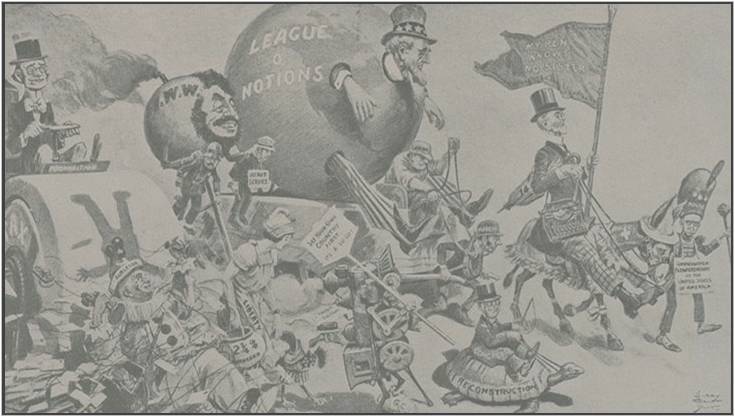Torre B – Piso 1 – Auditório 1
FCSH-UNL
ENTRADA LIVRE
Dia 10 de Novembro de 2011
9h00
Sessão de Abertura
9h45-11h15
Conferência inaugural
Sylvain Schirmann, Université de Strasbourg, Institut d’Etudes Politiques“Organisations Internationales, Coopération Économique et Financière dans l’entre-deux-guerres”
José Magone, Berlin School of Economics and Law
“Constructing a Regional Democratic Community in Europe: An Assessment of the Impact of European Organisations on Multilevel Governance after
11h15-11h30
Pausa11h30-13h00
Sessão de trabalho 1 = Construção Europeia e Processo de DecisãoModeradora: Yvette Santos
Davor Jančić, Utrecht University
“The European Union in the Portuguese Assembly: The Primary and Secondary EU Decision Making Scrutinised”Patrícia Calca, Instituto de Ciências Sociais, Universidade de Lisboa
“Legislative Behavior in Portugal – How the European Union is Influencing this Path?”Isabel Valente, CEIS20, Universidade de Coimbra
“OCDE: A Acção do Diplomata Calvet de Magalhães”13h00-14h00
Pausa almoço14h00-15h45
Sessão de trabalho 2 = Confronto e Apaziguamento
Moderador: Pedro Aires de Oliveira
Maria do Céu Pinto, Universidade do Minho
"A Experiência de Portugal no Conselho de Segurança"Mónica Ferro, Instituto Superior de Ciências Sociais e Políticas da Universidade Técnica de Lisboa
“Is there a Portuguese UN Policy?”Nelise Dias Vieira, Universidade Federal do Rio Grande do Sul
“Portugal na Corte Internacional de Justiça: Dos Casos Contenciosos ao Reconhecimento da Jurisdição Compulsória”Aurora Almada e Santos, Instituto de História Contemporânea, FCSH-UNL
“As Nações Unidas e o Desafio ao Colonialismo Português”José Pedro Monteiro e Miguel Bandeira Jerónimo, Instituto de Ciências Sociais, Universidade de Lisboa
“Os Vigilantes do Império: As Organizações Internacionais e a Questão do Trabalho Nativo no Império Colonial Português (1924-1975)”15h45-16h
Pausa16h-17h30
Workshop sobre história institucional com Sylvain Shirmann e Ana Cristina Nogueira da Silva, Universidade Nova de LisboaDia 11 de Novembro de 2011
9h00-10h45
Sessão de trabalho 3 = Geopolítica e Segurança no Pós-II Guerra MundialModeradora: Alice Cunha
Lívia Franco, Instituto de Estudos Políticos da Universidade Católica Portuguesa
“Portugal, a Segurança Europeia e o Novos Desafios Estratégicos”Steven Robinson, School of Geography , Politics and Sociology, Newcastle University
“Portuguese Security Policy: Europeanisation or Internationalisation?”Daniel Marcos, FCSH-UNL e IPRI-UNL
“Daniella Nicole Mak, Instituto Superior de Ciências do Trabalho e da Empresa
“Cold War Diplomacy: The United States and Portuguese Participation in NATO, 1949-1963”Rui Lopes, London School of Economics and Political Science e Instituto de História Contemporânea, FCSH-UNL
“Confronting Portugal within NATO, 1970-10h45-11h00
Pausa11h00-12h45
Sessão de trabalho 4 = Ciência, Clima e Economia
Moderadora: Aurora Almada e Santos
Maria Fernanda Rollo, Instituto de História Contemporânea, FCSH-UNL
“Diplomacia Económica. Portugal e as Organizações Internacionais no pós-Guerra”Tiago Brandão, Instituto de História Contemporânea, FCSH-UNL
“Portugal e o Programa de Ciência da OTAN”Pedro Miguel Cardoso, Universidade de Lisboa
“Portugal e as Negociações Internacionais sobre o Clima”Ana Margarida Ferreira, Centro de Administração e Políticas Públicas, Instituto Superior de Ciências Sociais e Políticas, Universidade Técnica de Lisboa
"Armadilhas do Endividamento. A Situação de Portugal na Actual Conjuntura"Lucia Coppolaro, Instituto de Ciências Sociais, Universidade de Lisboa
“Portugal and GATT (1947-1967)”12h45-14h00
Pausa almoço14h00-15h45
Sessão de trabalho 5 = Entre o Discurso, a Acção e a ImagemModerador: José Magone
António de Castro Raimundo, London School of Economics and Political Science
“Resisting Europeanisation?
Maria Fernanda Fernandes, CEDIS, Faculdade de Direito da Universidade Nova de Lisboa
“Portugal e a União Europeia: A Mensagem nos Discursos da Presidência Portuguesa de Ana Isabel Martins, CEIS20, Universidade de Coimbra
“Portugal e a União Europeia: Mudanças e Desafios no Corpo de Imprensa de Bruxelas“Célia Belim, Instituto Superior de Ciências Sociais e Políticas, Universidade Técnica de Lisboa
“Portugal e as Organizações Internacionais – Que Imagem desta Des(ligação) na Imprensa Portuguesa do Século XXI?”16h00
Sessão de encerramentoJosé Medeiros Ferreira, Instituto de História Contemporânea-FCSH-UNL e Universidade Lusófona de Humanidades e Tecnologias.

